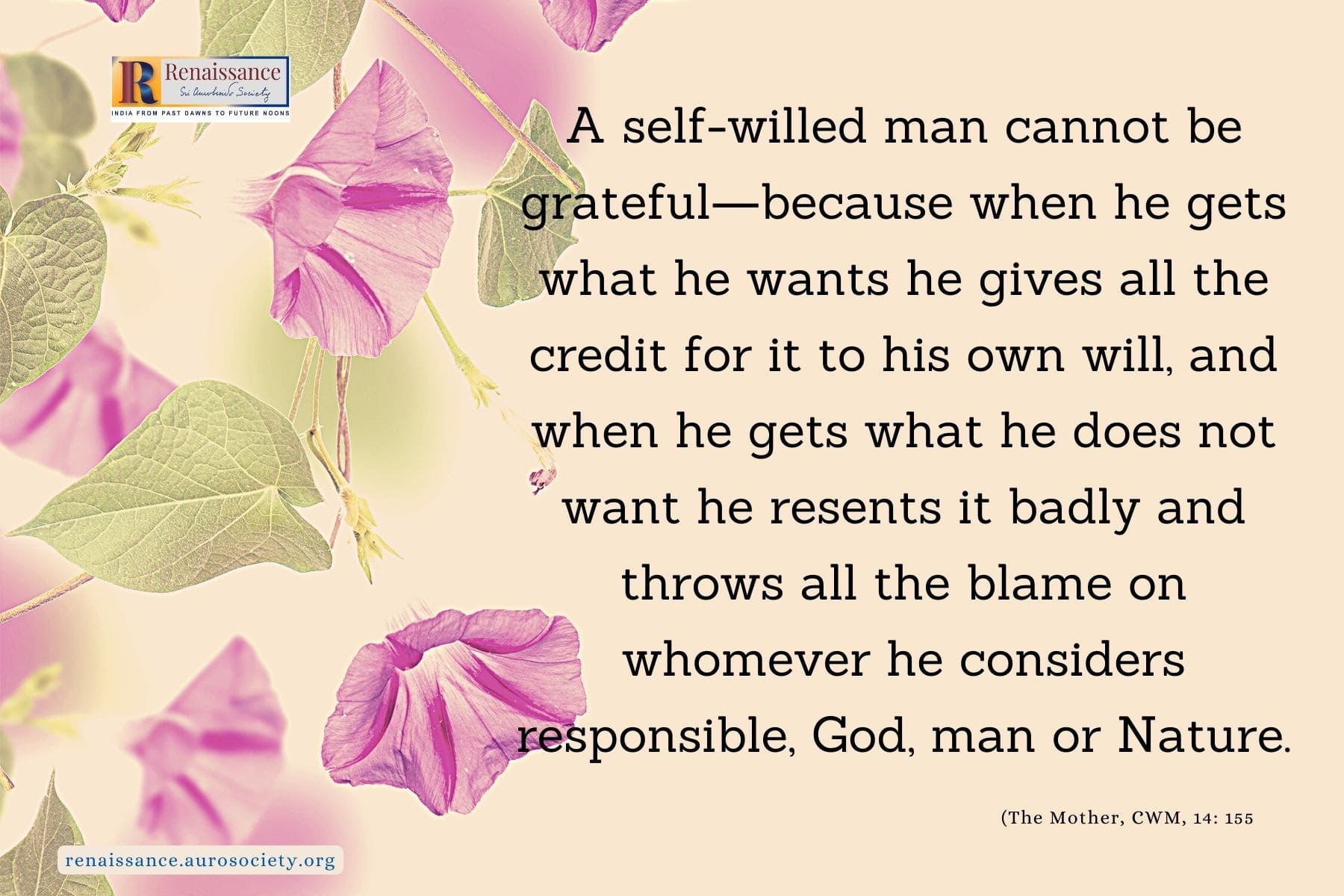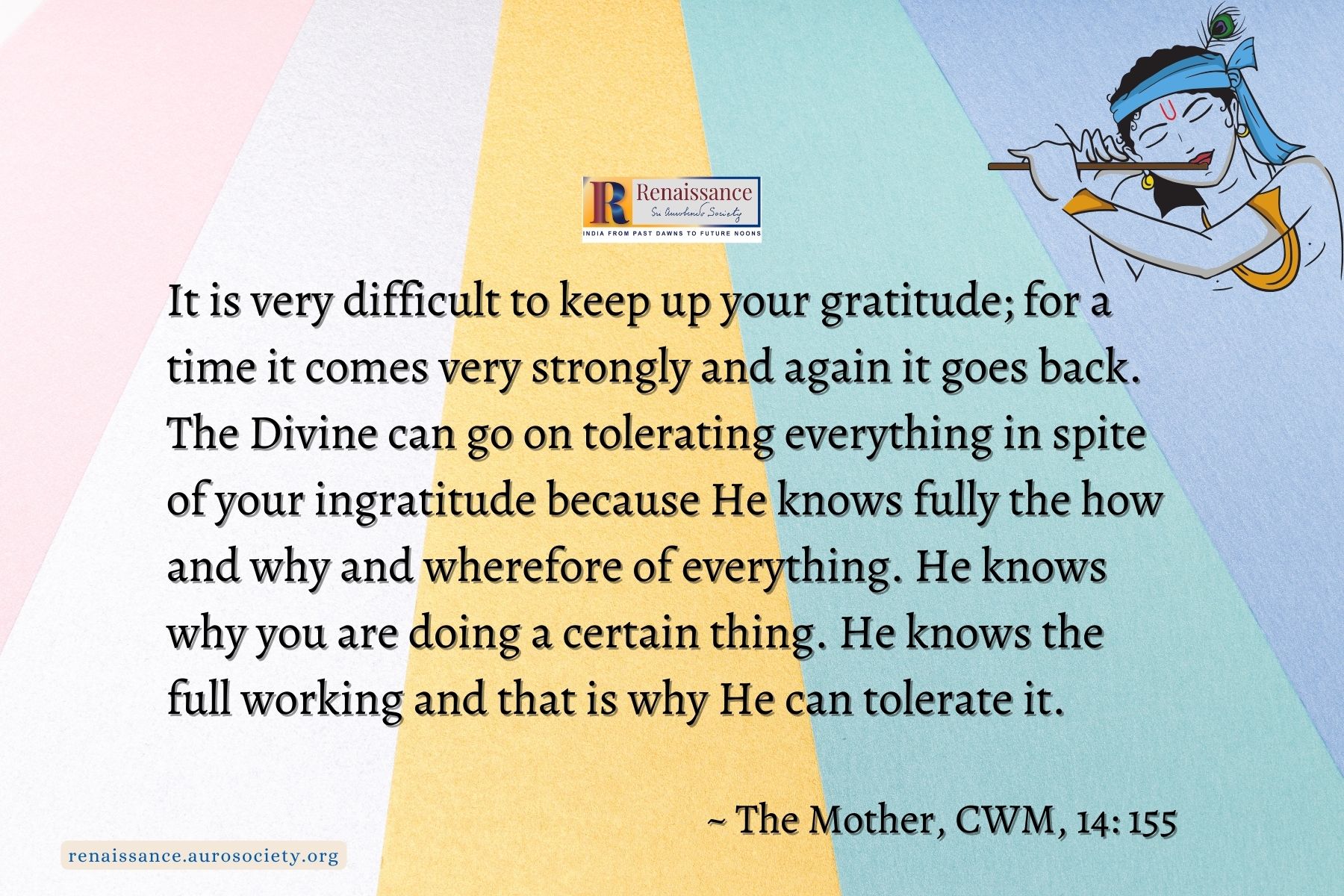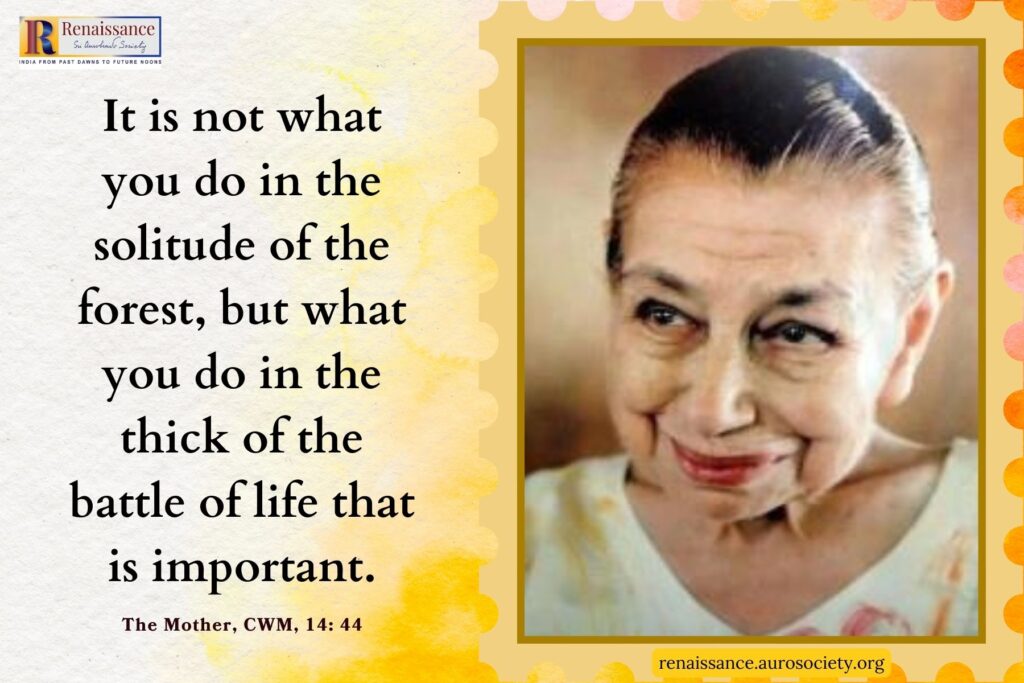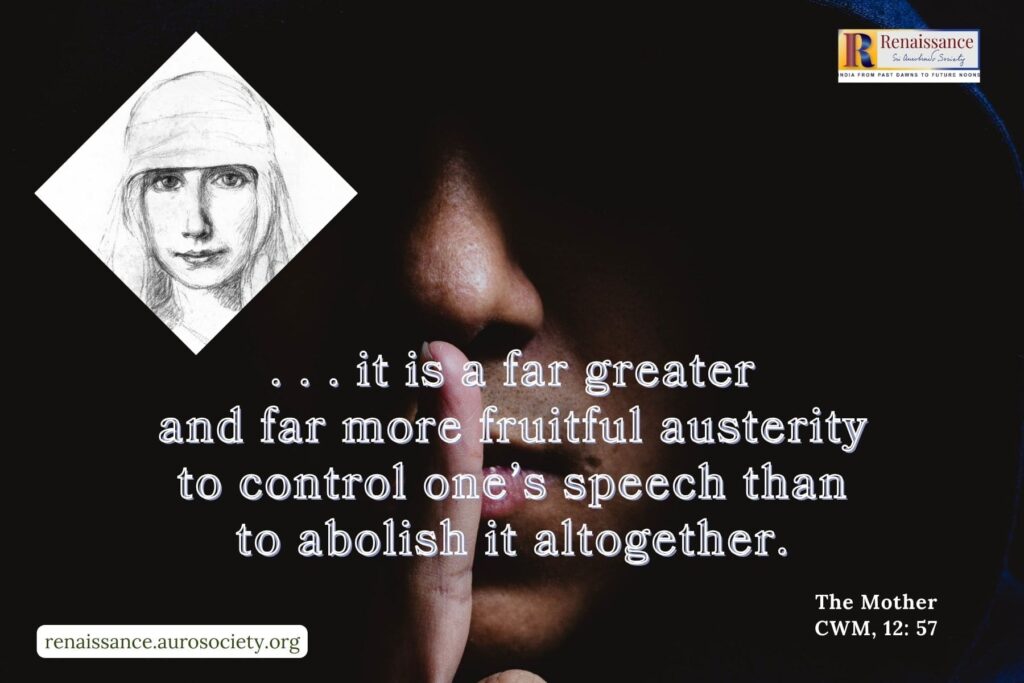Volume II, Issue 5
Author: The Mother
Editor’s Note: In these passages, the Mother guides us that in order to accept the Grace with a pure feeling of gratitude, one must have a certain inner humility which makes one recognise one’s helplessness without the Divine Grace. She also points out that for most people blows in life are needed to know to the very depths that there is no entity without the Divine Consciousness and the Grace.

Disciple: What is the way to accept the Grace with gratitude?
Ah! First of all you must feel the need for it.
This is the most important point. It is to have a certain inner humility which makes you aware of your helplessness without the Grace, that truly, without it you are incomplete and powerless. This, to begin with, is the first thing.
It is an experience one can very well have. When, you see, even people who know nothing find themselves in quite difficult circumstances or facing a problem which must be solved or, as I just told you, an impulse which must be overcome or something that has disturbed them. . . and then they realise they are lost, they don’t know what to do—neither their mind nor their will nor their feelings help—they don’t know what to do, then it happen; there is within them something like a kind of call, a call to something which can do what one cannot. One aspires to something which is capable of doing what one can’t do.
This is the first condition. And then, if you become aware that it is only the Grace which can do that, that the situation in which you find yourself, from there the Grace alone can pull you out, can give you the solution and the strength to come out of it, then, quite naturally an intense aspiration awakes in you, a consciousness which is translated into an opening. If you call, aspire, and if you hope to get an answer, you will quite naturally open yourself to the Grace.
And later—you must pay great attention to this (Mother puts her finger on her lips)—the Grace will answer you, the Grace will pull you out of the trouble, the Grace will give you the solution to your problem or will help you to get out of your difficulty.
But once you are free from trouble and have come out of your difficulty, don’t forget that it is the Grace which pulled you out, and don’t think it is yourself. For this, indeed, is the important point. Most people, as soon as the difficulty has gone, say, “After all, I pulled myself out of the difficulty quite well.”

There you are. And then you lock and bolt the door, you see, and you cannot receive anything any more. You need once again some acute anguish, some terrible difficulty for this kind of inner stupidity to give way, and for you to realise once more that you can do nothing.
Because it is only when you grow aware that you are powerless that you begin to be just a little open and plastic. But so long as you think that what you do depends on your own skill and your own capacity, truly, not only do you close one door, but, you know, you close lots of doors one upon another, and bolt them. You shut yourself up in a fortress and nothing can enter there. That is the great drawback: one forgets very quickly. Quite naturally one is satisfied with one’s own capacity.
Disciple: But Mother, even when one tries to think that one is powerless, there is something which believes one is powerful. So?
Ah, yes, ah, yes! Ah, it is very difficult to be sincere. . . That is why the blows multiply and sometimes become terrible, because that’s the only thing which breaks your stupidity. This is the justification of calamities. Only when you are in an acutely painful situation and indeed before something that affects you deeply, then that makes the stupidity melt away a little.
But as you say, even when there is something that melts, there is still a little something which remain inside. And that is why it lasts so long. . . .
How many blows are needed in life for one to know to the very depths that one is nothing, that one can do nothing that one does not exist, that one is nothing, that there is no entity without the divine Consciousness and the Grace. From the moment one knows it, it is over; all the difficulties have gone. When one knows it integrally and there is nothing which resists. . . but till that moment. . . And it takes very long.
***

Human intelligence is such that unless there is a contrast it does not understand. You know, I have received hundreds of letters from people thanking me because they had been saved; but it is very, very rarely that someone writes to thank me because nothing has happened, you understand!
Let us take an accident, it is already the beginning of a disorder. Naturally when it is a public or collective accident, the atmosphere of each person has its part in the thing, and that depends on the proportion of defeatists and those who, on the contrary, are on the right side. I don’t know if I have written this—it is written somewhere—but it is a very interesting thing.
I am going to tell you… People are not aware of the workings of Grace except when there has been some danger, that is, when there has been the beginning of an accident or the accident has taken place and they have escaped it. Then they become aware. But never are they aware that if, for instance, a journey or anything whatever, passes without any accident, it is an infinitely higher Grace. That is, the harmony is established in such a way that nothing can happen. But that seems to them quite natural.
When people are ill and get well quickly, they are full of gratitude; but never do they think of being grateful when they are well; and yet that is a much greater miracle! In collective accidents, what is interesting is exactly the proportion, the sort of balance or disequilibrium, the combination made by the different atmospheres of people.

Don’t miss: Gratitude and Devotion
~ Design: Beloo Mehra



